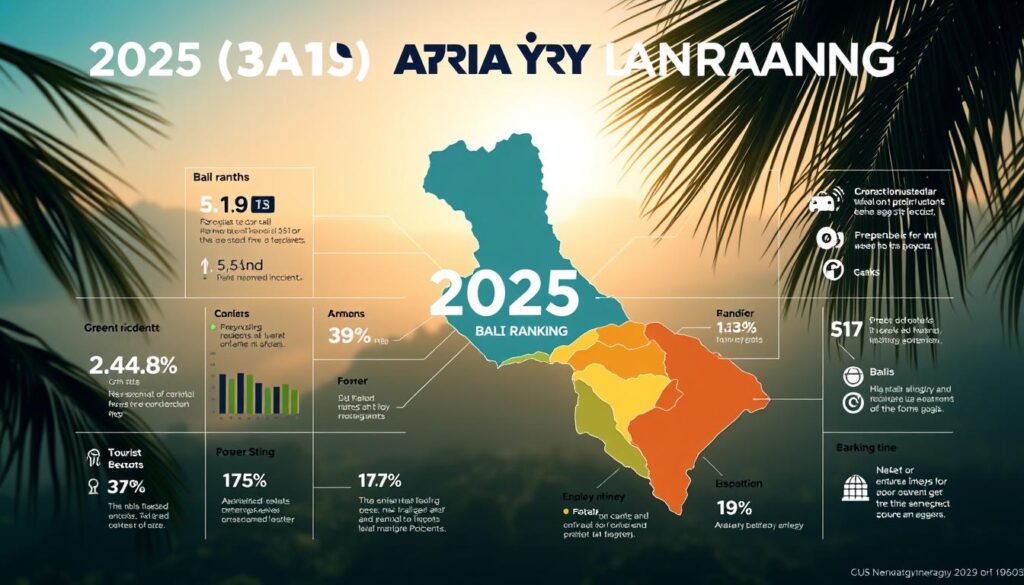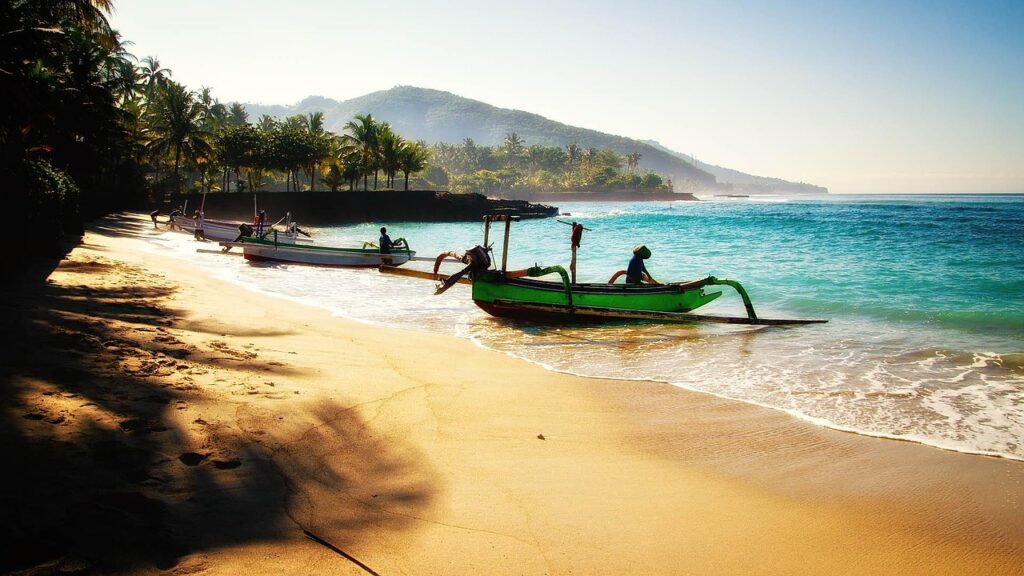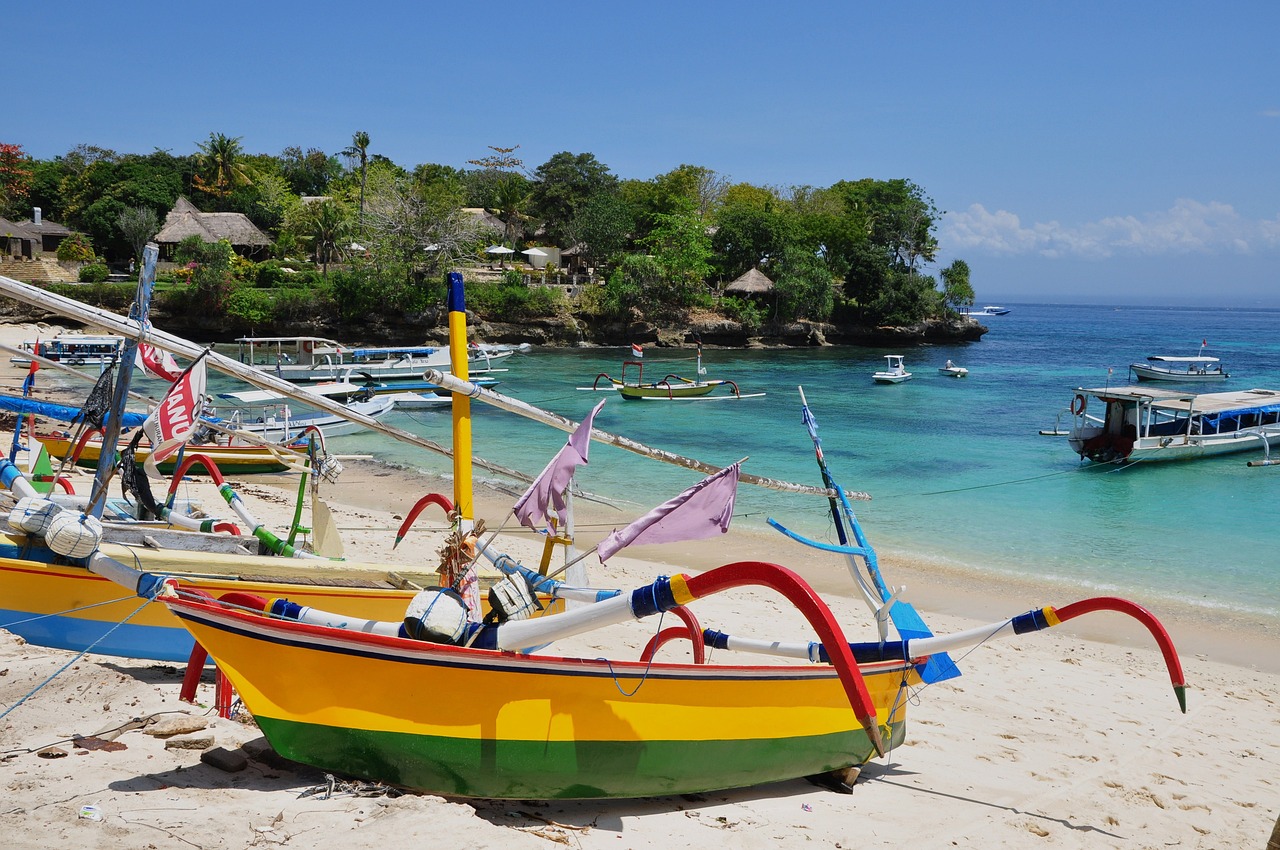Planning a trip to Bali can be both exciting and intimidating, especially when it comes to concerns about safety. As a popular tourist destination, Bali attracts visitors from around the world, but like any other place, it’s not immune to crimes.

Understanding the safety situation in Bali is crucial for a stress-free vacation. While petty theft and scams can occur, most visitors have a safe and enjoyable experience. Being aware of potential hazards and taking necessary precautions can significantly reduce risks.
So, is Bali safe? The answer depends on various factors, including where you go and what you do. This article will provide you with essential information about crimes in Bali and tips on staying safe.
Key Takeaways
- Understand the types of crimes that occur in Bali
- Learn how to protect yourself from petty theft and scams
- Discover safe areas to visit and areas to avoid
- Know the local laws and customs to avoid trouble
- Stay informed about local conditions and emergencies
Bali Safety Overview: The Current Situation in 2025
Understanding the safety situation in Bali is crucial for travelers planning their trip in 2025. As the island continues to attract millions of visitors, the need for a comprehensive safety overview becomes increasingly important.
As quoted by the Bali Tourism Board,
“Bali remains committed to ensuring the safety and well-being of our visitors.”
This commitment is reflected in the various initiatives aimed at enhancing tourist safety.
Safety Ranking Compared to Other Tourist Destinations
Bali’s safety ranking is relatively favorable when compared to other popular tourist destinations. According to recent data, Bali ranks among the top 5 safest destinations in Southeast Asia. The island’s low crime rate and proactive law enforcement contribute to its strong safety record.

The safety ranking is determined by various factors, including crime statistics, health concerns, and natural disaster risks. Bali’s efforts to maintain a safe environment for tourists have paid off, with many travelers reporting a trouble-free experience.
Recent Safety Trends and Statistics
Recent safety trends in Bali indicate a slight decrease in petty theft and scams, thanks to enhanced security measures and awareness campaigns. Statistics show that in 2024, there was a 10% reduction in reported crimes compared to the previous year.
However, it’s essential for travelers to remain vigilant, particularly in crowded areas and tourist hotspots. Staying informed about local conditions and following safety guidelines can significantly reduce the risk of encountering problems.
Is Bali Safe for Travelers in 2025?
As travelers plan their trip to Bali in 2025, a common question arises: Is Bali safe for visitors? Bali, a popular tourist destination, has seen fluctuations in safety over the years. However, with proper precautions and awareness, travelers can have a safe and enjoyable experience.
Safety for Solo Travelers
Solo travelers often face unique challenges, but Bali can be a relatively safe destination for them. It’s essential to stay informed about local conditions, avoid traveling alone at night, and keep in touch with family and friends back home. Many solo travelers have reported positive experiences in Bali, enjoying the island’s welcoming culture and vibrant atmosphere.
Safety for Families with Children
Families with children can also have a safe and enjoyable trip to Bali. It’s crucial to take necessary precautions such as ensuring children are supervised at all times, especially near water or in crowded areas. Bali offers many family-friendly activities and resorts that cater to families with children, making it an attractive destination.
Safety for Female Travelers
Female travelers can feel relatively safe in Bali, but it’s still important to take certain precautions. Dressing modestly, being aware of surroundings, and avoiding isolated areas at night can help minimize risks. Many female travelers have visited Bali without incident, enjoying the island’s culture and hospitality.
To summarize the safety for different types of travelers, here’s a comparison table:
| Traveler Type | Safety Precautions | General Safety |
|---|---|---|
| Solo Travelers | Stay informed, avoid night travel alone | Relatively safe |
| Families with Children | Supervise children, choose family-friendly areas | Safe with precautions |
| Female Travelers | Dress modestly, be aware of surroundings | Relatively safe |

Common Crimes in Bali: What to Watch For
Understanding the common crimes in Bali is crucial for a safe and enjoyable trip. While the island is generally considered safe for tourists, there are certain crimes that occur more frequently than others.
Petty Theft and Pickpocketing
Petty theft and pickpocketing are common crimes in Bali, particularly in crowded areas and tourist hotspots. To minimize the risk, keep your valuables secure and be mindful of your belongings in public.
Using a money belt or a secure bag can help protect your belongings. Be cautious when using ATMs, and avoid displaying large amounts of cash.
Scooter and Motorcycle Theft
Scooter and motorcycle theft are prevalent in Bali, with thieves often targeting unattended or poorly secured vehicles. Always lock your scooter or motorcycle to a fixed object, and consider using a disk brake lock for added security.
When renting a scooter, ensure it has a lock and use it to secure the vehicle when unattended.
Villa Break-ins
Villa break-ins have been reported in various areas of Bali, with thieves targeting homes and villas that appear unoccupied or have poor security. Ensure your villa has secure locks and consider using a safe for valuable items.
When leaving your villa unattended, make sure to lock all doors and windows, and inform your hosts or a trusted neighbor.
Drink Spiking and Drug-Related Crimes
Drink spiking and drug-related crimes are a concern in Bali, particularly in nightlife areas. Be cautious when accepting drinks from strangers, and keep your drink unattended.
Be aware of your surroundings and avoid engaging with individuals who may be involved in drug-related activities.
Tourist Scams in Bali: How to Avoid Being a Target
While Bali is a dream destination for many, tourists often encounter scams that can mar their experience. Being aware of these scams is the first step to avoiding them.
Tourists in Bali are often targeted by scammers using various tactics. It’s essential to be informed about these scams to enjoy a hassle-free trip.
Transportation Scams
One common scam involves taxi drivers refusing to use their meters and demanding high fares instead. To avoid this, always insist on using the meter or agree on the fare before you start your journey. Another scam involves drivers claiming that your destination is closed or that there’s a festival/event that you need to pay to attend. Verify such claimswith local sources or your hotel.
Money Exchange Scams
Scammers often target tourists at money exchange counters, offering poor exchange rates or demanding commission. Use authorized currency exchange offices and check the current exchange rate before making any transactions. Be wary of street money changers as they often give counterfeit money.
Fake Tour Guides and Packages
Fake tour guides and packages are another common scam. Book tours through reputable agencies and verify the authenticity of tour guides. Check reviews and ask for recommendations from your hotel or other travelers.
Online Booking and Accommodation Scams
With the rise of online bookings, scams related to accommodations have increased. Always book through reputable websites and check the reviews and ratings of the accommodation. Be cautious of very cheap deals that seem too good to be true.
As a tourist in Bali, being aware of these scams can significantly reduce the risk of falling victim to them. Staying informed and taking necessary precautions can ensure a safe and enjoyable trip.
“The key to avoiding scams is being aware and prepared. Don’t let scammers ruin your Bali experience.”
Regional Safety Guide: Safest and Riskiest Areas in Bali
Understanding the safety landscape of Bali is crucial for travelers to have a smooth and enjoyable experience. Bali, a tropical paradise with diverse landscapes and vibrant culture, attracts millions of tourists each year. However, like any other tourist destination, it has its share of safe and not-so-safe areas.
The island’s safety can be understood by examining the various regions, each with its unique characteristics and safety concerns. Here’s a breakdown of safety in some of the most visited areas.
Kuta and Seminyak Safety
Kuta and Seminyak are among Bali’s most popular tourist spots, known for their beautiful beaches and vibrant nightlife. Petty theft and pickpocketing are common issues in these crowded areas. Tourists should remain vigilant, especially in crowded spots and at night.
Ubud and Central Bali
Ubud, known for its art scene and cultural heritage, is generally considered safe. However, traffic congestion and scooter accidents are concerns. Visitors should be cautious when riding scooters and follow local traffic rules.
Canggu and North Bali
Canggu, a haven for surfers, has seen a rise in motorcycle theft. Tourists should secure their vehicles and be mindful of their belongings. North Bali, with its serene landscapes, is relatively safe, but remote areas may lack immediate assistance.
Uluwatu and South Bali
Uluwatu, famous for its cliffside temples and sunset views, is generally safe. However, monkey theft at the Uluwatu Temple is a concern. Visitors should be cautious with their belongings during temple visits.
To further understand the safety dynamics, here’s a comparison of crime rates in different regions:
| Region | Petty Theft | Scooter Theft | Overall Safety |
|---|---|---|---|
| Kuta/Seminyak | High | Medium | Medium |
| Ubud/Central Bali | Medium | High | High |
| Canggu/North Bali | Medium | High | Medium |
| Uluwatu/South Bali | Low | Low | High |
Transportation Safety in Bali
Understanding transportation safety in Bali is key to a stress-free vacation. Bali offers a variety of transportation options, including motorbikes, taxis, rideshares, and public transportation. Each of these options comes with its own set of safety considerations.
Motorbike and Scooter Safety
Motorbikes and scooters are popular modes of transportation in Bali, offering flexibility and convenience. However, they also come with significant risks, particularly for inexperienced riders. Always wear a helmet, and ensure you have the necessary insurance coverage. Be cautious of Bali’s traffic conditions, which can be chaotic, especially during peak tourist seasons.
Taxi and Rideshare Safety
When using taxis or rideshares in Bali, it’s essential to choose reputable services. Blue Bird is a well-known and trusted taxi company. For rideshares, use apps like Grab or Gojek, which provide an added layer of safety through GPS tracking and digital receipts. Always verify the driver’s identity before getting into the vehicle.
Public Transportation Considerations
Bali’s public transportation system includes buses and shuttle services. While these are generally safe, be mindful of your belongings, especially in crowded areas. Consider using licensed tour operators for longer journeys to ensure a smoother and safer experience.
| Transportation Mode | Safety Tips | Recommended Services |
|---|---|---|
| Motorbike/Scooter | Wear a helmet, check insurance | Rental services with helmets |
| Taxi/Rideshare | Use reputable services, verify driver ID | Blue Bird, Grab, Gojek |
| Public Transport | Be mindful of belongings | Licensed bus and shuttle services |
Natural Disaster Risks and Preparedness
Bali’s unique geography makes it susceptible to a range range of natural hazards, including volcanic eruptions and monsoon floods. The island is located on the Pacific Ring of Fire, which makes it prone to earthquakes and volcanic activity. Understanding these risks and being prepared is crucial for a safe and enjoyable trip.
Volcanic Activity and Earthquakes
Bali is home to several active volcanoes, with Mount Agung being the most notable due to its recent eruptions. Visitors should stay informed about the current volcanic activity through local news and government advisories. Earthquakes can occur due to the island’s location on the fault lines. It’s essential to be prepared with a plan, including knowing emergency evacuation routes.
“The Indonesian Center for Volcanology and Geological Hazard Mitigation provides updates on volcanic activity.”
Monsoon Season and Flooding
Bali experiences a monsoon season that can lead to significant flooding and landslides. Travelers should be cautious during heavy rainfall and avoid areas prone to flooding. Understanding the weather patterns and staying updated with weather forecasts can help in planning daily activities.
Beach Safety and Water Hazards
The beaches in Bali can be hazardous due to strong currents and waves. Swimmers should be aware of the ocean conditions and follow safety advisories. Some beaches have designated swimming areas and lifeguards. It’s also important to be cautious with water activities, such as surfing or diving, by following safety guidelines and using reputable service providers.
| Natural Hazard | Precautions | Resources |
|---|---|---|
| Volcanic Activity | Stay informed, have an emergency plan | Local news, government advisories |
| Monsoon Flooding | Monitor weather forecasts, avoid flood-prone areas | Weather apps, local news |
| Beach Safety | Check ocean conditions, follow safety advisories | Beach safety signs, lifeguards |
Health and Medical Safety Concerns
Maintaining health and safety while traveling in Bali involves being informed about common illnesses, medical facilities, and other health-related issues.
Common Illnesses and Prevention
Bali, like many tropical destinations, poses risks of certain illnesses. Common issues include dengue fever, Zika virus, and gastrointestinal diseases. To prevent these, travelers should ensure they have all recommended vaccinations before arrival. Using insect repellent, wearing protective clothing, and avoiding undercooked food and untreated water can significantly reduce the risk of contracting these illnesses.
Water Safety and Food Hygiene
Water safety and food hygiene are critical in preventing waterborne and foodborne illnesses. It’s advisable to drink bottled or filtered water and avoid consuming raw or undercooked seafood and meat. When eating out, choosing busy restaurants with high turnover can help ensure that the food is handled and cooked safely.
Medical Facilities and Travel Insurance
Bali has a range of medical facilities, from basic clinics to more advanced hospitals. For serious medical conditions, it’s crucial to have travel insurance that covers medical evacuations. Travelers should check their insurance policy to ensure it includes coverage for medical emergencies in Indonesia.
Emergency Resources and Contacts in Bali
In case of an emergency during your Bali trip, knowing the right contacts can be a lifesaver. Bali, being a popular tourist destination, has various resources in place to assist travelers in need.
Conclusion: Enjoying Bali Safely
Bali, with its stunning beaches, temples, and vibrant culture, is a popular destination for travelers. To ensure a safe and enjoyable trip, it’s essential to be aware of potential safety risks and take necessary precautions.
By understanding the current safety situation, being mindful of common crimes and tourist scams, and taking steps to mitigate risks, you can enjoy Bali safely. Follow Bali safety tips such as being cautious with your belongings, using reputable transportation services, and staying informed about local conditions.
Whether you’re a solo traveler, with family, or exploring the island with friends, being aware of your surroundings and taking necessary precautions can help you have a safe and enjoyable experience. So, is Bali safe? With the right mindset and precautions, you can enjoy all that Bali has to offer while minimizing your exposure to risk.
By staying informed and being mindful of your safety, you can enjoy Bali safely and create unforgettable memories.
FAQ
Is Bali safe for solo female travelers in 2025?
Yes, Bali is generally considered safe for solo female travelers. However, it’s still important to take necessary precautions such as being aware of your surroundings, avoiding traveling alone at night, and dressing modestly.
What are the most common crimes in Bali?
The most common crimes in Bali include petty theft, pickpocketing, scooter and motorcycle theft, and villa break-ins. Travelers should be aware of their belongings and take necessary precautions to secure their property.
How can I avoid being scammed in Bali?
To avoid being scammed in Bali, be cautious when using transportation services, exchanging money, and booking tours and accommodations. Research reputable companies, read reviews, and be aware of the local customs and prices.
Are there any areas in Bali that I should avoid?
While Bali is generally a safe destination, some areas are considered safer than others. Areas like Kuta and Seminyak are generally considered safe, while areas like Ubud and Canggu have a more relaxed atmosphere but may have some petty crime. Avoid areas that are known for their party scene if you’re not comfortable with that environment.
What should I do in case of an emergency in Bali?
In case of an emergency in Bali, contact the local authorities, your country’s embassy or consulate, and your emergency insurance provider. Keep important phone numbers handy, such as the Bali Emergency number (112) and the Tourist Police (0361-224444).
Is it safe to use a motorbike or scooter in Bali?
Riding a motorbike or scooter in Bali can be hazardous, especially for inexperienced riders. Wear a helmet, follow local traffic rules, and be aware of the road conditions to minimize the risk of accidents.
What health precautions should I take when traveling to Bali?
When traveling to Bali, take precautions against common illnesses like dengue fever, Zika virus, and COVID-19. Practice good hygiene, use insect repellent, and stay up-to-date with the latest health advisories.
Are there any specific safety concerns for families with children in Bali?
Families with children should be aware of the risk of child-related scams, ensure their children’s safety around water and traffic, and take precautions against sunburn and heat exhaustion.
How can I stay informed about natural disaster risks in Bali?
Stay informed about natural disaster risks in Bali by registering with your country’s emergency alert system, following local news and weather reports, and staying in touch with your tour operator or accommodation provider.

